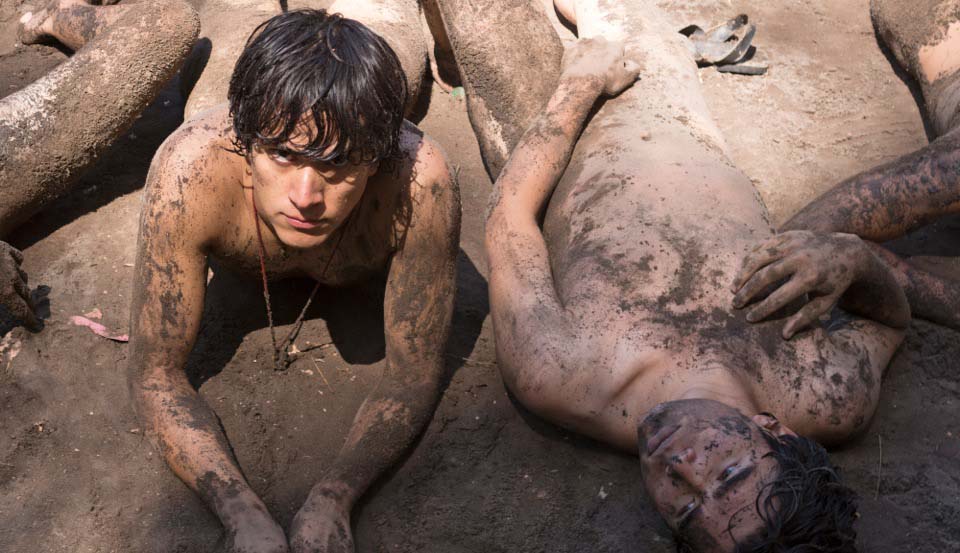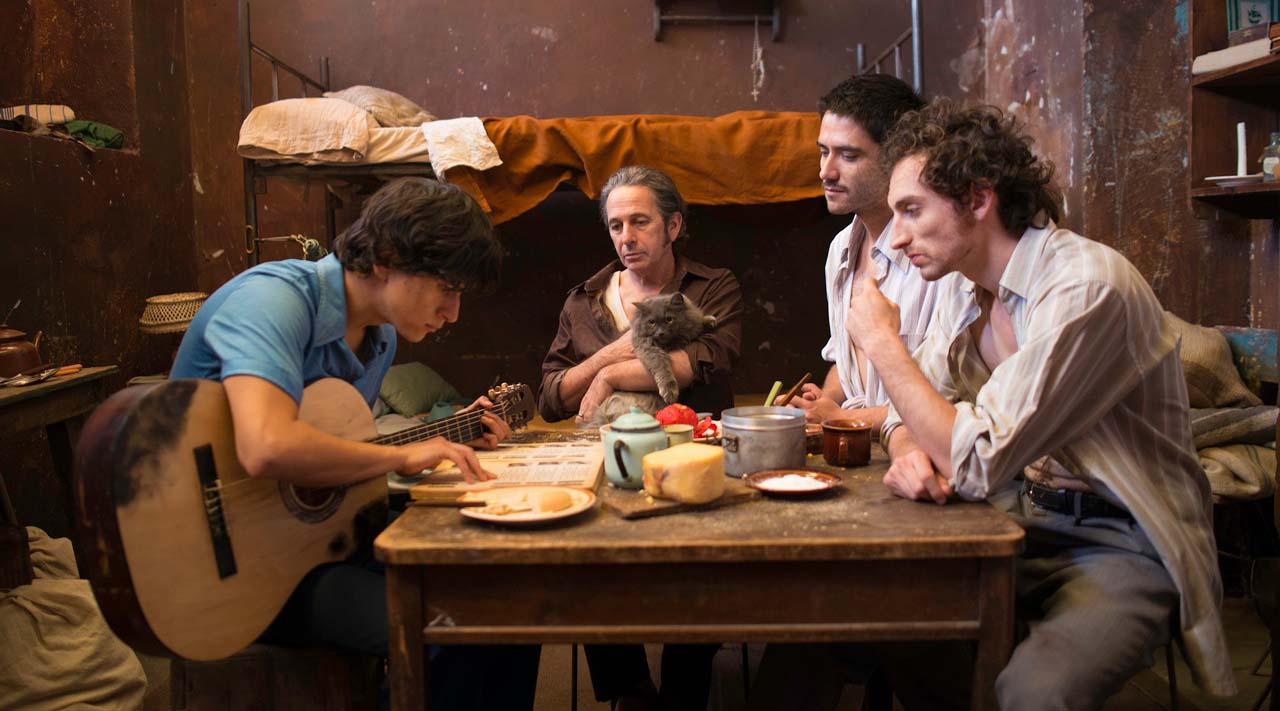Sebastián Muñoz on Sanfic, San Sebastián’s Films in Progress, ‘The Prince’
By Jamie Lang
LOS ANGELES (Variety.com) – SANTIAGO, Chile — Sebastián Muñoz’ “El Principe” (“The Prince”) is one of two Industria works in progress, along with Carlos Piñeiro’s “Sirena,” selected to participate in San Sebastián’s Films in Progress this September.
The feature is based on a dime store, low circulation novel written in the ‘70s that Muñoz found by happenstance, and has spent the last five years refining, along with co-writer Luis Barrales, into the film that screened in rough cut on Tuesday morning in Santiago, Chile.
Set in San Bernardo, 1970 Chile, the film is a homoerotic story that portrays that era of Chilean society through the eyes of a confused young prisoner named Jaime, a history of violence, love and sex among prisoners, all set to a haunting Spanish cover of Nat King Cole’s “Nature Boy.”
A solitary twenty-year-old narcissist, Jaime cuts the throat of his best friend el Gitano, the object of his obsession, in an apparent passionate outburst.
Sentenced to prison, he meets El Potro, an elderly and respected, often feared, prisoner, who fills Jaime’s deep need for affection and recognition. Together they establish a close relationship of “black love,” as they call it in prison, which will allow Jaime, now dubbed “The Prince,” to discover the machinations of affection and loyalty, while facing the power struggles behind bars.
The film will be distributed domestically by Chile’s Jirafa, and is produced by El Otro Film, Niña-Niño Films and Le Tiro.
Muñoz and producer Marianne Mayer-Beckh talked with Variety about the film’s origins, its violence, and the message it might deliver to anyone struggling with identity, delivered through a historical context.
Most important, do you have any news? Sales, distribution, other festivals or anything that has not yet been announced.
Mayer-Beckh: We are just beginning the process of distribution, and we hope that with our participation at the upcoming WIPs (Sanfic and San Sebastián) it will be possible to begin negotiating sales agreements. Our sales agent is Patra Spanou and we have signed a distribution agreement for the domestic market with Jirafa.
Can you talk a bit about the book on which the film is based?
Muñoz: It is a novel from the beginning of the 70s. It is the only novel from writer Mario Cruz, which at the time was sold in newspaper kiosks on San Diego Street and never came to be sold in bookstores. The author is a dramatist and we interviewed him during the project’s development stage to learn about and explore the origin of the story.
The film is Jaime’s story but touches on larger themes that are as relevant today as they were half a century ago. How do you think your movie will be received by the modern public?
Muñoz: I feel that there are two universal concepts that touch humanity and that will attract modern audiences. These two great themes are explored through Jaime’s story. One is desire, and the other is the need of the human being to love and be loved.
That is why we narrate these concepts in prison, where these locked-up men only have each other and seek affection and “black love” as a form of freedom crossed with desire. In addition, the narcissism of Jaime is a true reflection of the current society and the spite that leads him to murder his friend, his love.
The use of Nature Boy is such a wonderful option given Jaime’s homicidal impulse to be loved and accepted. How was the decision made to use that song throughout the film?
Muñoz: It is the leitmotiv of the movie. It is the song that Jaime hears to for the first time with El Gitano. Every time he hears it he remembers. It’s a way of singing to him what he never dared to tell him in person for fear of being discriminated against because of his sexual impulses and desires towards another man. It is the piece that reflects Jaime’s own life story. It’s his inner voice that will somehow lead him to love for the first time, and to be loved in return.
There are some graphic and violent scenes that viewers may find difficult to watch. That said, who do you see as the target audience, who do you hope will see this movie?
Muñoz: Every young person who fights every day to dare to define and defend their sexuality and their desire, and to those who still don’t know how to do it.
Mayer-Beckh: It is a captivating and current story, despite having been written in the ‘70s. The need for human affection crosses humanity, and has been a constant throughout history.



